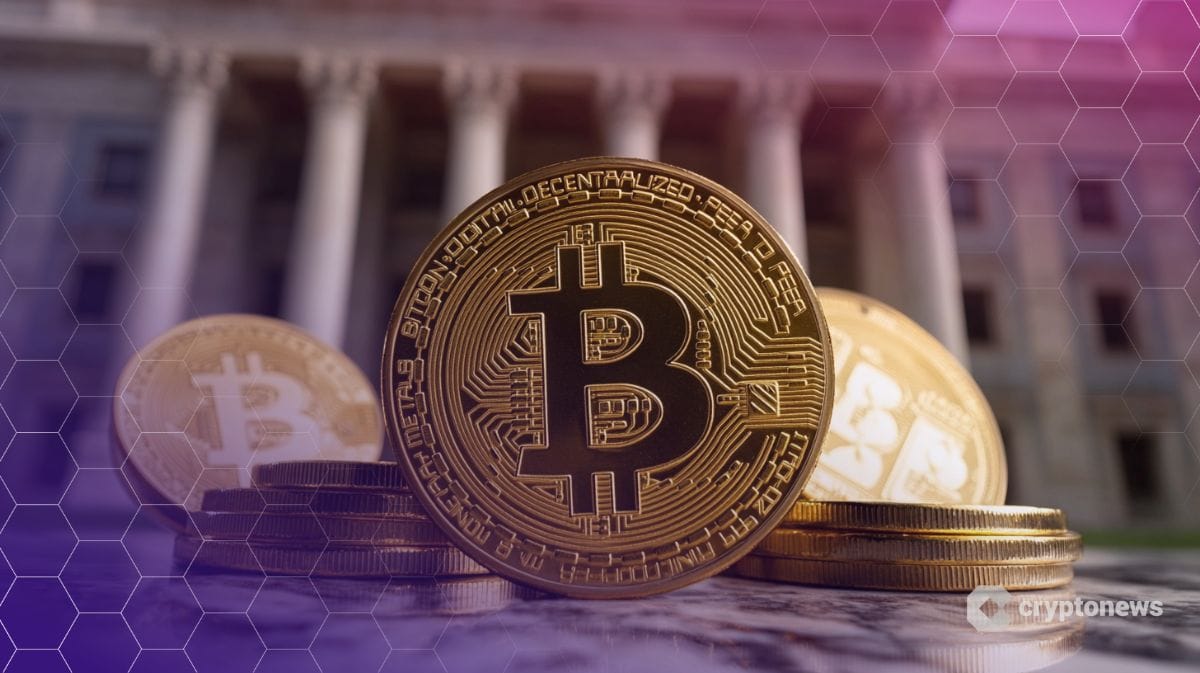Last updated:
 Why Trust Cryptonews
Why Trust Cryptonews

West Virginia State Senator Chris Rose has introduced the Inflation Protection Act of 2025, a bill that would permit the state treasury to allocate a portion of its funds to digital assets and precious metals.
Filed on February 14, the bill sets specific criteria for digital asset investments, limiting them to cryptocurrencies with a market capitalization exceeding $750 billion.
At present, Bitcoin (BTC) is the only digital asset that meets this threshold. Stablecoins are also included in the proposal.
West Virginia Bill Proposes 10% State Treasury Allocation to Crypto and Gold
Under the bill’s provisions, the state treasury would be allowed to invest up to 10% of its total holdings in digital assets and precious metals.
The assets could be held either on-chain or through exchange-traded funds (ETFs).
Senator Rose’s proposal is part of a growing trend among U.S. states considering Bitcoin and digital asset reserves as a hedge against inflation and government spending deficits.
On January 23, former U.S. President Donald Trump commissioned a working group to explore the feasibility of a federal digital asset reserve, prompting a wave of similar initiatives at the state level.
Utah has already made progress on this front.
On February 6, the Utah House of Representatives passed a bill allowing the state treasury to invest in Bitcoin, select altcoins, and stablecoins. The bill is now under consideration in the Utah Senate.
The same day, Kentucky joined the movement by introducing a bill that would permit up to 10% of state funds to be invested in digital assets, including Bitcoin.
Meanwhile, Michigan became the latest state to propose a strategic digital asset reserve, with Representatives Bryan Posthumus and Ron Robinson introducing legislation on February 13.
Unlike other states, Michigan’s proposal does not impose restrictions on the type of digital assets included in the reserve.
More U.S. States Propose Bitcoin Reserve Bills
Earlier this week, Texas lawmakers reintroduced a bill aimed at establishing a state-run Bitcoin reserve, this time broadening its scope to include other digital assets that meet specific criteria.
The Texas filing came after Florida Republican Senator Joe Gruters introduced a bill proposing that the state allocate a portion of its funds to Bitcoin and other digital assets as a hedge against inflation.
Arizona has also moved its respective bills beyond the House committee stage, while North Carolina recently introduced a measure to permit state investments in Bitcoin exchange-traded products.
Meanwhile, North Dakota opted against advancing a similar proposal.
In another positive development, US spot Bitcoin exchange-traded funds (ETFs) saw inflows totaling nearly $5 billion in January, a strong start that could push them toward $50 billion or more by the end of the year, according to Bitwise CIO Matt Hougan.



